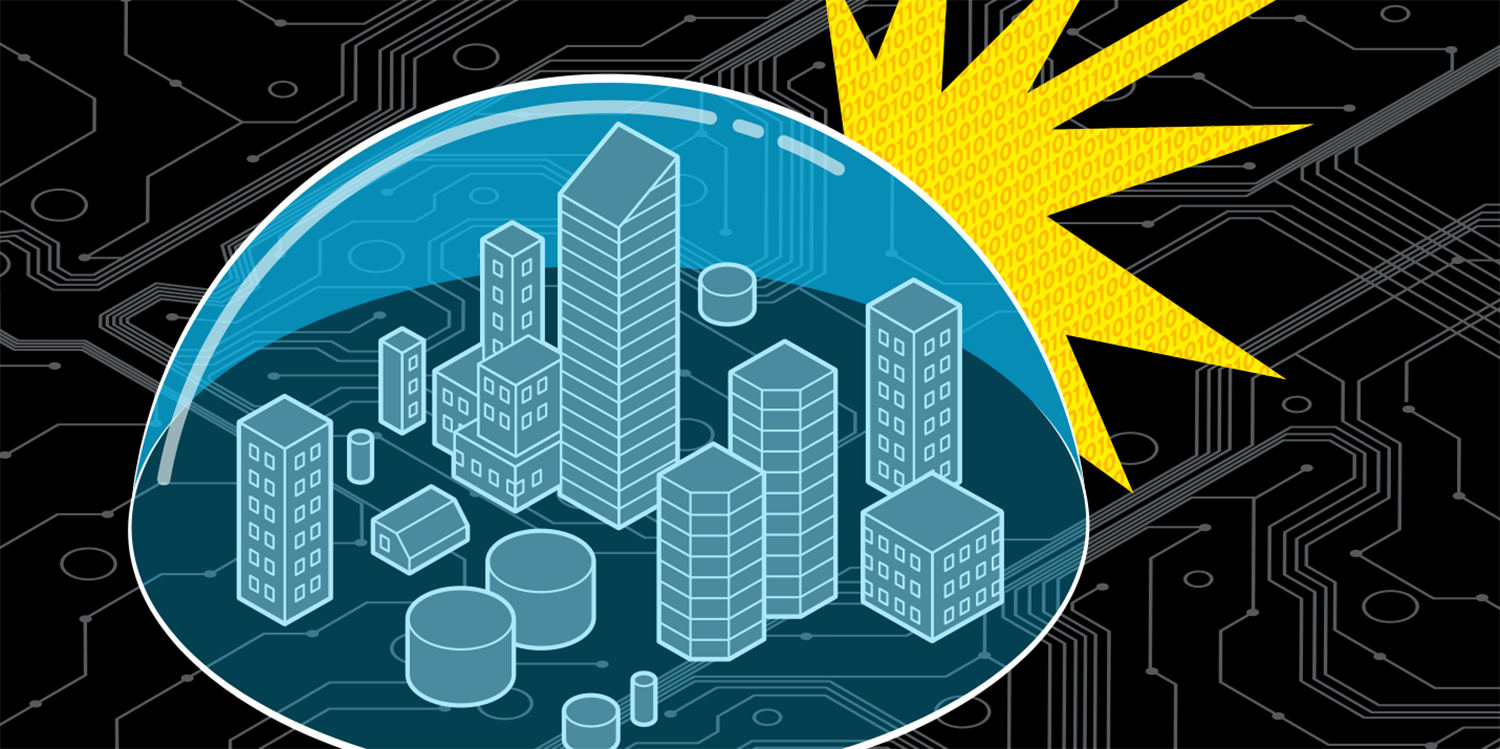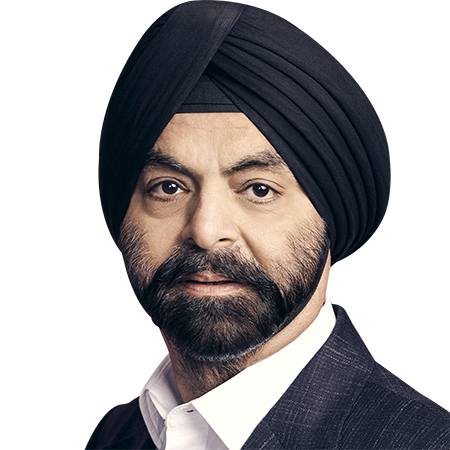Building a Joint Defense for the Digital Ecosystem
In cyberspace, where one is vulnerable, all are vulnerable

Illustration by CHRIS PHILPOT
Today, technology and digitally enabled services are fundamental for businesses to operate and to provide the capabilities so many of us rely upon in our daily lives.
Moreover, technology and data are critical components for addressing major global issues, such as climate change, health care, financial inclusion, and opportunity.
These opportunities exist because of the remarkable power of data and the infrastructure that comprise our modern digital ecosystem.
Even before the pandemic, economies and businesses were rapidly embracing technology. Cyberspace had become one of the most important connectors between countries and entrepreneurs alike, putting tools, resources and scalability in reach for all. Secure cross-border data flows were being leveraged to resolve major global issues such as combating climate change, closing economic gaps, fostering diversity, and driving innovation and efficiencies. And, with more data being created than ever before — an estimated 90 percent of data on the internet was created in the past two years — and services quickly outpacing goods as the primary unit of trade, the significance of technology and digitally enabled services has never been clearer.
All of the good and the potential for us to do better is not the product of technology and ingenuity alone — it is the product of trust. That was the basis of the creation of cyberspace in the first place: the democratization of knowledge and opportunity, equal accessibility and collaboration.
However, cyberspace is increasingly becoming a battleground not for innovation and advancement, but as an open field for countries and criminal actors to exploit. In 2020 alone, global losses from cybercrime surpassed $1 trillion, according to the Center for Strategic and International Studies — a number that is expected to increase to $5 trillion annually in the immediate years to come.
The impact of these attacks goes well beyond financial loss. They directly degrade trust and stability in the technologies, information and institutions that are integral to and underlie so many elements of our lives today.
Where one is vulnerable, we are all vulnerable. No single government, technology company, financial institution or even industry sector can effectively secure the digital ecosystem on its own in our hyperconnected world. So collectively we must work together to not only bring more people and enterprises of all sizes into the digital ecosystem, but to ensure our security.
That’s why we need to build a long-term, sustainable shield to protect the digital ecosystem — one that is centered on shared standards and harmonized regulations that allow for innovation and privacy, competition and collaboration — an objective made real by the G7 mandate for a Future Tech Forum facilitated by the Organization for Economic Cooperation and Development (OECD). The shorter-term win is an agreed-upon set of cybersecurity principles that not only establish the role of governments and corporations as global stewards of cybersecurity, but also pave the path for our longer-term goal.
Here’s where it begins:
Collaboration: Public and private entities should partner and share information and best practices to enhance the security and resiliency of our broader digital ecosystem.
Transparency: Cybersecurity attributes should be made easier to identify, understand and compare across products and services.
Empower: Underserved communities should have equivalent access to cybersecurity resources, tools and expertise.
Expertise: Formal and informal academic programs should be supported to create the next generation of cyber experts while growing and evolving the field.
Culture: Cybersecurity should be embedded into the culture of the digital age as an enabler of innovation.
Convergence: Cybersecurity standards and regulations should use common assessments grounded in widely used frameworks and standards to ensure even application across jurisdictions.
Privacy: Individuals should own and control their personal information and understand how their information is protected.
Our best defense as we continue to explore the opportunities of cyberspace is a solid foundation of trust and cooperation. That is where the sum of our efforts become greater than our individual contributions and how cybersecurity can become the key that unlocks all the promise and opportunity of the digital economy.
Ajay Banga is executive chairman of the board of directors of Mastercard. He moved into this role following 11 years as the company’s president and chief executive officer. Banga is also chairman of the International Chamber of Commerce and is an independent director of Exor, where he serves as chair of the company’s Environmental, Social and Corporate Governance committee. He has previously served on the boards of Kraft Foods and Dow Inc. Banga is a member of the Trilateral Commission, a founding trustee of the U.S.-India Strategic Partnership Forum, a former member of the National Committee on United States-China Relations and chairman emeritus of the American India Foundation. He is a co-founder of The Cyber Readiness Institute, a member of the World Economic Forum’s EDISON Alliance, and served as a member of President Barack Obama’s Commission on Enhancing National Cybersecurity. He is a past member of the president’s Advisory Committee for Trade Policy and Negotiations. Banga is a member of the Weill Cornell Medicine board of fellows. He has also served on the board of governors of the American Red Cross, as well as the boards for the Asia Society, the New York Hall of Science and the National Urban League, among others. He was awarded the Padma Shri Award by the president of India in 2016, the Ellis Island Medal of Honor in 2019 and the Business Council for International Understanding’s Global Leadership Award. He is a fellow of the Foreign Policy Association and was awarded the Foreign Policy Association Medal in 2012.
Banga began his career at Nestlé, India, where for 13 years he worked on assignments spanning sales, marketing and general management. He also spent two years with PepsiCo before joining Citigroup, where he rose to the role of chief executive officer of Citigroup Asia Pacific.


